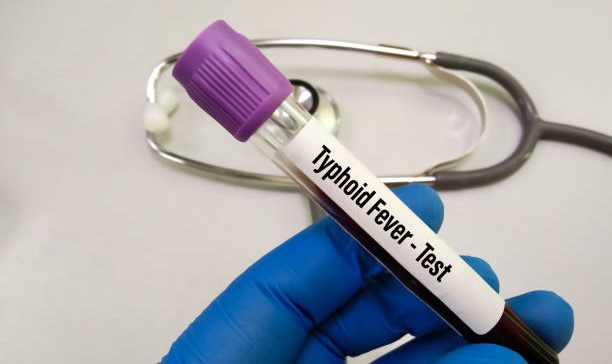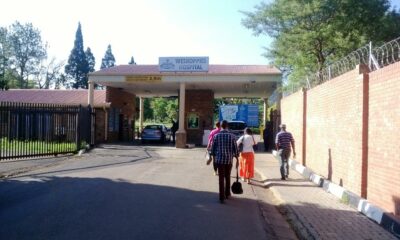News
Tshwane’s Water Declared Safe as Typhoid Investigation Continues

Tshwane’s Water Declared Safe as Typhoid Investigation Continues
Officials urge residents to remain cautious as the source of the outbreak remains unknown.
For weeks, residents across Tshwane have worried about whether their tap water was safe to drink. Rumours of contamination spread fast, especially in areas like Hammanskraal, where clean water has long been a sore point. But new test results from the City of Tshwane have brought some relief: no traces of Salmonella typhi, the bacterium responsible for typhoid fever, have been found in any of the city’s drinking water samples.
City spokesperson Lindela Mashigo confirmed the results this week, adding that while the water supply has tested clean, investigations are still underway to find the true source of the outbreak.
“The investigations and interventions will continue until the root cause of the disease has been established,” said Mashigo.
48 Typhoid Cases Reported in 2025
So far, 48 typhoid cases have been reported across the Tshwane district this year with 15 cases in October alone, though none were recorded in the last week of the month.
Of these, two people have sadly died, while four remain hospitalised as of early November.
Mashigo noted that the majority of cases emerged from informal or rural settlements, particularly Hammanskraal, where 11 of the October cases were confirmed. One case came from Pretoria West and three from Bronkhorstspruit.
While any rise in typhoid cases is concerning, the city emphasized that typhoid is endemic in South Africa meaning it regularly appears in some areas due to ongoing sanitation challenges.
Experts Explain: What Causes Typhoid?
According to Dr. Angelique Coetzee, chairperson of the South African Medical Association, typhoid fever spreads primarily through contaminated food or water especially in communities without proper sewage systems.
“When sewage or dirty water mixes with what people eat or drink, the bacteria can enter the body and cause infection,” Coetzee explained.
Symptoms often appear one to two weeks after exposure and include persistent fever, severe headache, nausea, loss of appetite, abdominal pain, and sometimes a faint rash known as “rose spots.”
If untreated, the infection can lead to intestinal bleeding or perforation, which can be life-threatening.
Government Response: Keep Hands Clean and Water Safe
While the city works to locate the outbreak’s source, health authorities are urging residents to stay vigilant about hygiene.
Gauteng Department of Health spokesperson Kealeboga Mohajane reminded the public to wash hands regularly, before eating, after using the toilet, and when handling food or children.
“In places where clean water isn’t available, hand sanitiser with at least 60% alcohol can help reduce the risk,” Mohajane said.
Community Reaction: Cautious Relief
On social media, Tshwane residents expressed cautious optimism.
Many were relieved to hear the city’s water was safe, but others, especially in Hammanskraal, where residents have battled water quality issues for years, say they won’t let their guard down just yet.
“Typhoid or not, Hammanskraal’s water has been unsafe for a long time. We’ve been buying bottled water for years,” one user posted on X (formerly Twitter).
The city’s water concerns have a long history, from E. coli detections to infrastructure breakdowns that forced residents to rely on tankers and bottled water. Experts say these conditions make outbreaks more likely even when the municipal water itself is not contaminated.
Public health experts argue that the typhoid scare underscores a broader issue: South Africa’s uneven access to clean water and proper sanitation.
While Tshwane’s tests have cleared the city’s water supply, the outbreak points to deep-rooted infrastructure and hygiene challenges in informal settlements, a problem that cannot be solved with testing alone.
As investigations continue, residents are being urged to boil water where possible, maintain good hygiene habits, and report any suspected symptoms to health clinics immediately.
For Now, Tshwane’s Water Is Safe, But the Work Isn’t Over
With no Salmonella typhi detected, Tshwane can breathe a sigh of relief, for now. But city officials know this is far from the end of the story. Finding the outbreak’s true source, improving sanitation, and rebuilding public trust in the water system will take time.
For residents in Hammanskraal and beyond, the message remains clear: stay cautious, stay clean, and stay informed.
{Source: The Citizen}
Follow Joburg ETC on Facebook, Twitter , TikTok and Instagram
For more News in Johannesburg, visit joburgetc.com



























